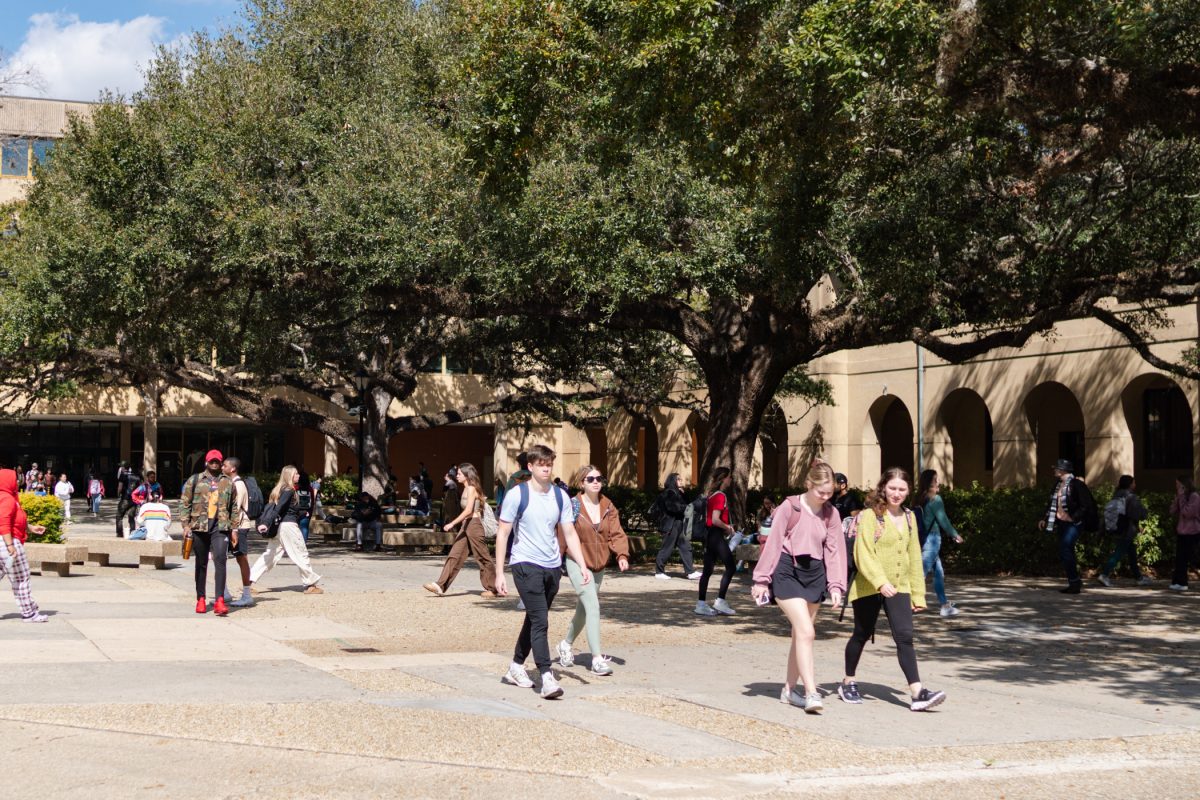BP’s April 20 well blowout in the Gulf of Mexico will have numerous lasting effects on Louisiana’s environment and economy, even impacting the University, according to a nationally recognized University researcher.
“If you get a bunch of different people in a room to figure out what’s happening out there, you’ll get a bunch of different perspectives,” said Edward Overton, professor emeritus in the Department of Environmental Sciences. “The spill is over, but the saga of the spill is not. We’re going to be dealing with the Deepwater Horizon incident many years to come.”
Overton presented “The Chemistry of Oil Spills” on Friday during the School of the Coast and Environment’s weekly fall seminar series. Overton discussed problems made during the response and posed by the disaster as well as possible solutions.
Overton said the federal moratorium on deepwater oil and gas drilling in the Gulf of Mexico should be lifted because it will continue to negatively affect the state and the University.
“What that means is next year the revenues coming into the state will be less, and when revenues coming in to the state are less, revenues coming to LSU … will be less,” Overton said.
Overton said there is not a “black river of oil at the bottom of the ocean” even though only about one-third of the oil from the blown-out well reached the surface, while the remaining two-thirds was dispersed either chemically or naturally at depth.
Quantifying the amount of oil in the environment is difficult, Overton said, because “it spreads around the environment unevenly in patches.”
Though more than 10,000 miles along the Gulf were in harm’s way, the oil only impacted about 600 miles of shore. Just more than 100 miles of shore still have “moderate to heavy oil impacts,” while another 480 miles are “experiencing light to trace oil.”
The oil and natural gas that came from the well head will float at first before sinking after being in the water for weeks. After months, the oil becomes tar balls.
“The final transition is to a nuisance,” Overton said. “Tar balls are more of a nuisance than an environmental trouble.”
Overton said future spills should be handled with three cleanup steps — offshore removal, nearshore removal and onshore removal. The solution, he said, for the first two steps is to “skim, baby, skim” with mechanical devices to pull oil from the water. The third step is to “suck, baby, suck,” where crews use vacuum-like machines to remove oil.
“When you burn it or when you disperse it, you leave some oil in the environment,” Overton said. “When you skim it and pick it up, you send it to a refinery and recycle it. And who here is against recycling?”
The SCE seminar series continues Friday at 11:30 a.m. in the Dalton Woods Auditorium with a presentation by Daniel Harrington, an assistant professor in the School of Public Health at the LSU Health Sciences Center in New Orleans.
—
Contact Nicholas Persac at npersac@lsureveille.com
Professor: Well blowout’s effects to last, will impact University
October 3, 2010







